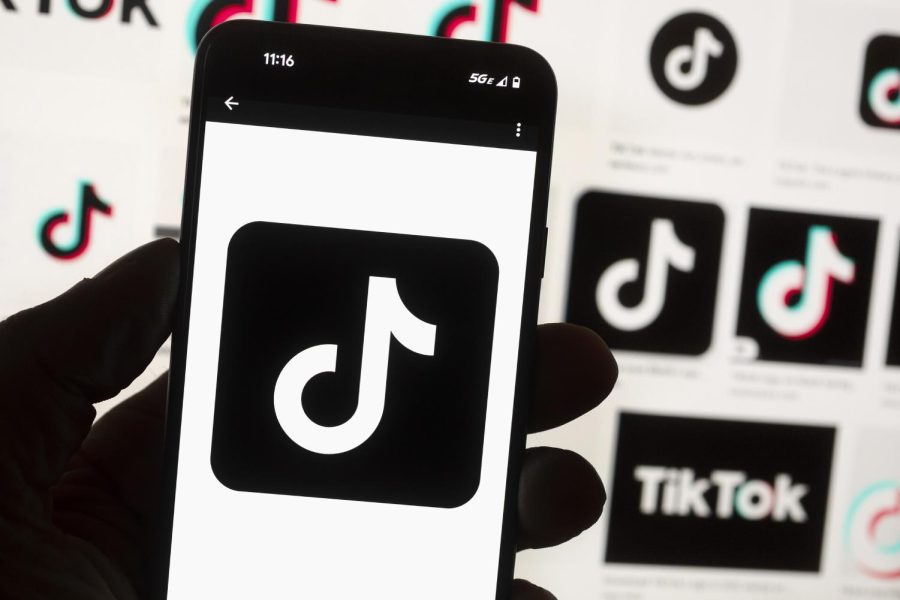Editorial | TikTok will create further tensions between the U.S. and China
The TikTok logo is seen on a cellphone on Oct. 14, 2022, in Boston.
March 23, 2023
Shou Chew, the chief executive officer of TikTok, testified before Congress Thursday about the increasing security concerns around the app’s access to users’ data. Last week, President Biden urged the parent company of TikTok, ByteDance — which is based in China — to sell the app to a U.S. company as more security concerns have come forward about the app.
The data concerns about TikTok are worrisome for the U.S. as TikTok is different from other U.S.-based apps, and it has an advanced algorithm that learns from its users. This can — and has — led to espionage from China using data from U.S. citizens. Additionally, this algorithm can influence American public opinion and lead users down potential concerning information pipelines. All of these concerns will lead to even more contentious relations between the U.S. and China and show the future of essentially a technologically fought “Cold War” between the two countries.
TikTok’s algorithm has changed the landscape of technology. Documents from ByteDance reveal that the app was coded to get users to stay on it for as long as possible and therefore will lead users to more and more videos geared towards their interests. This can sometimes potentially lead vulnerable users down dangerous paths, leading to self-harm, suicide and dangerous political ideologies. Regarding the latter, the U.S. government is extremely concerned that these rabbit holes can influence public opinion, especially because of the app’s connections to the Chinese government.
In China, the app suppressed information about the government, so these concerns are not unfounded. Hashtags related to the oppression of Muslims in China and a sexual assault committed by a Chinese official were suppressed in the app.
TikTok also retains immense amounts of data from its users. Some of this data includes keystroke patterns and biometric information, which rightfully causes some concern from U.S. officials, some saying that this information is not necessary to obtain. It also leads to further fears that the Chinese government could use this information for espionage purposes in an already contentious relationship with the U.S. in which tensions — especially around espionage with technology — are already major worries. These worries are somewhat viable as the Justice Department has already begun investigating the potential spying of two American journalists by ByteDance.
This is not to say there is an easy answer. There are 150 million American TikTok users and 7,000 U.S.-based employees. There are many people whose livelihoods depend on the app and TikTok often provides educational and safe spaces for teens. Additionally, President Biden understands that it would be extremely unpopular to ban an app with as much cultural influence as TikTok. Rising tensions between the U.S. and China won’t go away, especially as technology continues to advance. However, how the U.S. handles TikTok will serve as a powerful example of the future of the technological Cold War in place.



